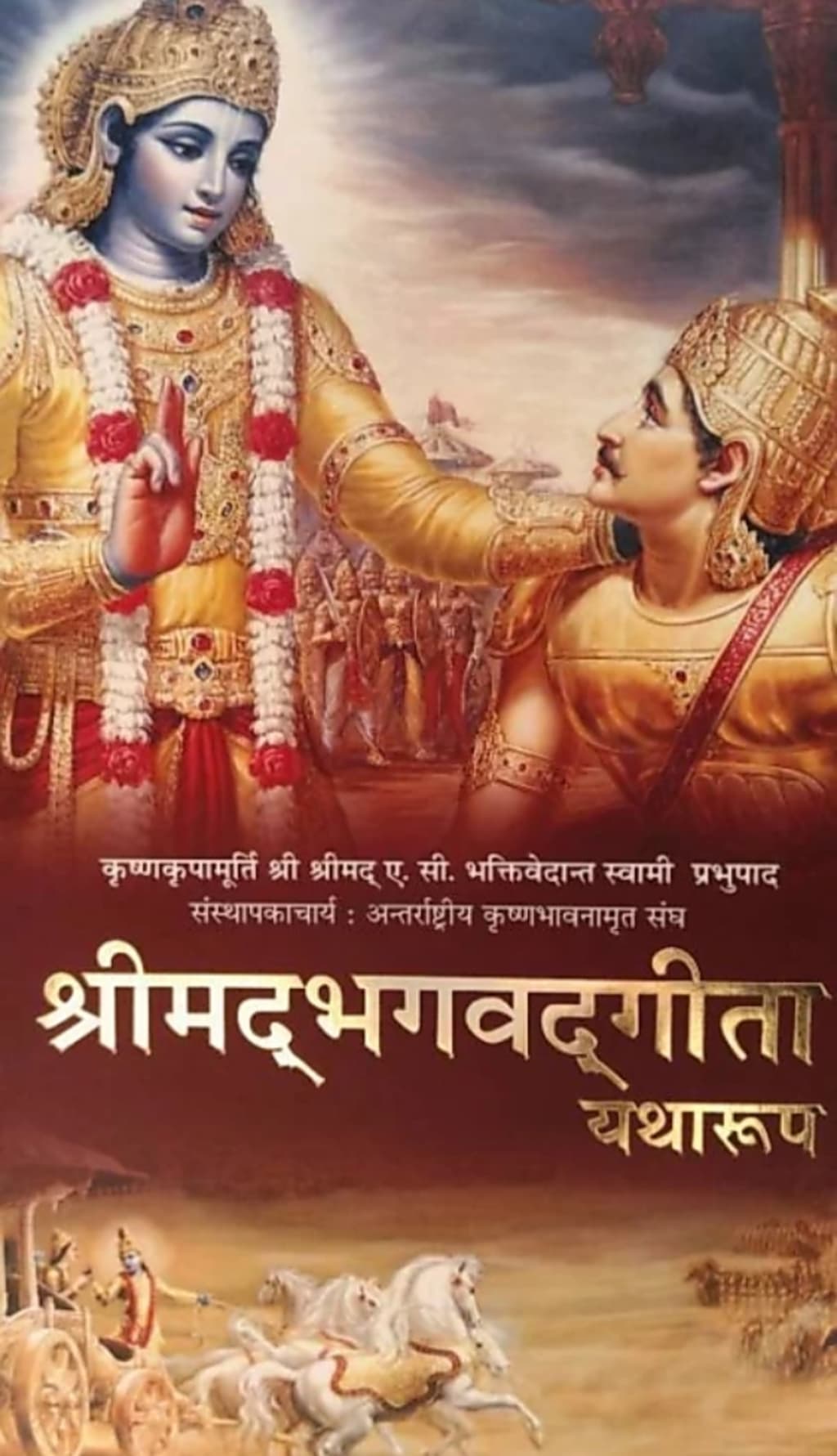
Start writing...ihThe Bhagavad Gita is a Hindu scripture that is considered to be one of the most important texts in the religion. It is a part of the epic poem, the Mahabharata, and is composed as a dialogue between Lord Krishna and the warrior prince Arjuna.
The main motive of the Bhagavad Gita is to provide guidance and wisdom to individuals who are striving to live a spiritual life. It discusses various philosophical concepts, including the nature of the self, the nature of reality, and the nature of action.
One of the key teachings of the Bhagavad Gita is the idea of dharma, which refers to an individual's duty or righteous path in life. The text emphasizes the importance of performing one's duties without attachment to the results of those actions.
Overall, the Bhagavad Gita encourages individuals to live a life of devotion, surrender, and detachment, and to strive for self-realization and spiritual liberation.
The Bhagavad Gita is a lengthy text consisting of 18 chapters and over 700 verses. It is a part of the epic poem, the Mahabharata, and is composed as a dialogue between Lord Krishna and the warrior prince Arjuna.
It is not possible to provide the full text of the Bhagavad Gita here, but I can provide a brief summary of the contents of each chapter:
Chapter 1: The Setting - The first chapter sets the stage for the dialogue between Krishna and Arjuna, with Arjuna expressing his doubts and fears about going to war against his own family members.
Chapter 2: The Nature of the Self - Krishna begins his teachings by explaining the nature of the self and the importance of understanding the difference between the body and the soul.
Chapter 3: The Path of Action - Krishna teaches Arjuna about the importance of performing one's duties without attachment to the results of those actions.
Chapter 4: The Path of Knowledge - Krishna explains the concept of karma yoga, or the path of selfless action, and also discusses the importance of understanding the true nature of the self.
Chapter 5: The Path of Renunciation - Krishna discusses the path of renunciation, or sannyasa, and how it can be practiced while still living in the world.
Chapter 6: The Path of Meditation - Krishna teaches Arjuna about the practice of yoga and the importance of meditation in achieving self-realization.
Chapter 7: The Nature of God - Krishna explains his divine nature and the importance of surrendering to him.
Chapter 8: The Path of Liberation - Krishna teaches about the process of leaving the body at death and attaining liberation from the cycle of birth and death.
Chapter 9: The Most Confidential Knowledge - Krishna reveals his divine nature in greater detail and explains the importance of surrendering to him.
Chapter 10: The Opulence of the Absolute - Krishna describes his various manifestations and divine qualities.
Chapter 11: The Universal Form - Krishna reveals his universal form to Arjuna, demonstrating his all-encompassing nature.
Chapter 12: Devotional Service - Krishna teaches about the path of devotion and the importance of surrendering to him with love and devotion.
Chapter 13: The Field and the Knower of the Field - Krishna explains the nature of the material world and the difference between the body and the soul.
Chapter 14: The Three Modes of Material Nature - Krishna discusses the three modes of material nature and how they influence human behavior.
Chapter 15: The Supreme Person - Krishna teaches about the supreme nature of the self and the importance of understanding one's relationship with him.
Chapter 16: The Divine and Demoniac Natures - Krishna describes the characteristics of those who are divinely inclined and those who are demoniac in nature.
Chapter 17: The Threefold Division of Faith - Krishna discusses the three types of faith and how they relate to one's actions.
Chapter 18: Conclusion - The final chapter summarizes the teachings of the Bhagavad Gita and emphasizes the importance of surrendering to Krishna and performing one's duties without attachment to the results of those actions.





Comments
There are no comments for this story
Be the first to respond and start the conversation.